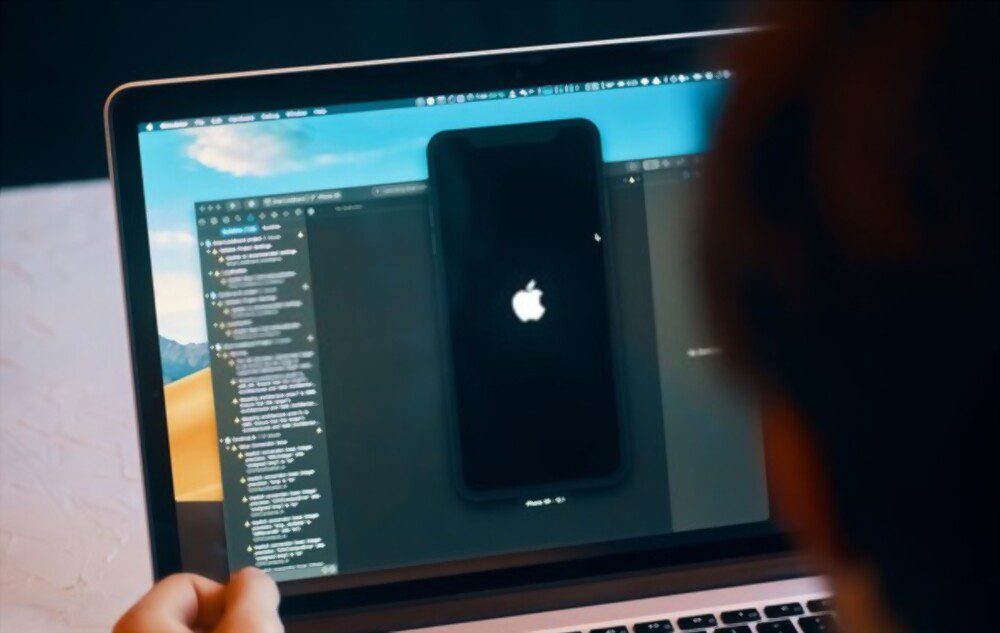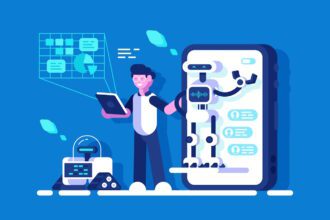
Have you ever dreamt of becoming an Android developer? If that is your case, you are a wise dreamer – at least for the U.S. Bureau of Labor Statistics.
According to their report, the Android developer career path is expected to increase up to 21% from 2018 through 2028. By then, they predict at least 284,100 job openings for this field of specialization. Also, it’s worth considering that the average salary is $40.7 an hour – Android developers earn on a global average from $65,000 to $108,000 a year. Plus, we live in the era of remote work, which means there are no geographical limits to your future opportunities.
It sounds like you chose the best future for yourself. But how to get started as an Android developer?
The Ordinary Day Of An Android Developer
The ordinary day of an Android developer is quite busy. They are responsible for the creation of digital applications and their insertion in the Android system market. Sounds easy? This role requires you to design different applications meeting your clients’ expectations in a short time.
From the analysis of current trends to writing the app, the role requires both technical and personal skills.
Role & Responsibilities:
- Designing and building advanced applications for Android platforms.
- Collaborating with cross-functional teams to define, design, and build new features.
- Working with outside data sources, third-party libraries, and APIs.
- Unit-test code for robustness, such as edge cases, usability, and general reliability.
- Taking care of debugging and improving the app’s performance.
- Using Android SDK and working with remote data via REST and JSON.
- Keeping updated with new tech trends to improve the app performance.
Hard Skills:
- Java and Klotin: Java is the core programming language used to build Android applications. As a future Android developer, you need experience with Java concepts such as loops, lists, variables, and control structures. Kotlin, on the other hand, is a new programming language. Officially announced at the 2017 Google I/O conference, Kotlin is now one of the most popular languages in web development.
- SQL: There is no efficient app without an efficient database. SQL is one of the most popular databases to work with Android apps. It can express queries to retrieve information from databases and organize data.
- Android Tools: Android’s tools are free and easy to get. For example, you can download for free the Android SDK and Android Studio – the official integrated development environment (IDE) for Android app development. The latter is a program to assemble apps from various packages and libraries. The first includes sample code, software libraries, coding tools, and all the info you need to build an Android app.
- XML: XML syntax allows describing data. It’s a necessary feature when it comes to designing interfaces and analyzing the Internet data feeds.
Soft Skills:
- Motivation: Working with app development means becoming better every day. But the journey to perfection is long and full of obstacles. To become the better version of yourself, you need to test solutions and go through mistakes. So, the first skill you need to have is motivation to never give up and always finding creative solutions to improve your performance.
- Teamwork: Writing code is a solitary job, but you still work in a team. You need communication and organizational skills to quickly adjust to team dynamics and give the best result working together on the same goal.
- Curiosity: Technology updates every day. A good developer must be curious about learning and exploring new tools to keep the company competitive in the market.
Steps To Become An Android Developer
So, that’s how your ordinary day will look like. You can specialize in different parts of the development process, like app architecture, writing code, or monitoring the app life-cycle.
No matter in which field you will specialize, here are the 4 steps you can’t skip to grow your network and skills:
Learn How To Write Code
You won’t be surprised to hear that to do a good job you need to know your tools. So, the first step of your journey is learning how to write code. Besides a BS/MS degree in Computer Science, Engineering, or related subjects, you can do additional courses. Or even better, contributing to side projects to test your knowledge in a practical context.
The two things you need to work on are:
- Basics Programming: Such as variables, constants, numbers, booleans, and conditional logic, arrays, hash maps, loops, functions, classes.
- Object-Oriented Programming: The most common paradigm used in Android development.
You can find resources to specialize your skills on platforms like Stack Overflow, Android Weekly, the Android Dev subreddit, vogella tutorials, YouTube lessons, and Google’s official Android Developers site. The latter is particularly helpful to build app modules. On print, the most popular Android books are Head First Java, Android Programming: Pushing the Limits, and Java: A Beginner’s Guide. And if you want to test your skills, you can always check these resources.
IDE & APIs
After learning the basics, you need to achieve a strong command of IDE and APIs. When you build Android apps, the best option is Android Studio. It’s the official IDE from Google, and as such, it includes all the features you need to create user interfaces, test on emulators, debugging, etc. You will need time to familiarize yourself with the program and have all the resources you need to build the best Android app for your client.
In addition, you need to learn how to work with APIs writing with Kotlin or Java language. It’s a necessary step to combine the language you choose with the Android technologies making the app work. These are its core features:
- Activity lifecycle
- Fragments and their lifecycle.
- Intents
- Building to Devices
- Uploading system in Google Play store
- Model-View-Controller & OOP
- Debugging Apps in Android Studio
- RecyclerViews
- UI and UE
- Persisting data
- Transform JSON into usable data in apps
- RESTful APIs
- Principle
Join A Community
Learning new things is hard, but remember, you aren’t alone – or the first one, for that matter. There are tons of communities you can join to share knowledge and ask for tips.
There are different ways to start your research of a community of Android developers. For example, on the Google Developer Experts page, you can filter “Android” to find other developers and follow them on Twitter. With this strategy, you can follow the latest trends, posts, and find fellow developers to share your ideas and challenges. Here are other Twitter accounts to follow and be part of the Android community:
- Twitter Android Developers
- Rebecca Franks (for female developers)
- Android Studio
- Google Developers
- Bad Android Advice
For live meetups, you can check Android Developer Meetups to find events in your area or the Android Developer conferences. In addition, you can check these Slack channels to start over conversation and ask for advice on project and job positions:
Finally, you can subscribe to dedicated pages on Reddit or Quora feeds and ask about any doubts you have.
Start Your Job Search
Once you find your community, it’s time to attract job opportunities. Being active on dedicated sites and chats is a good way to make your name circulating in the community. Additionally, you can start showcasing your work on LinkedIn and Xing, or on sites like Behance and GitHub.
Joining a community is a good strategy to look at other people’s portfolios and take inspiration, as well as updating your CVs. On your resume, make sure to list your skills, awards, and certifications referencing the job descriptions you are applying for. In addition, you can upload your CV on Indeed Resume, highlighting your life goals and motivations.
Once you have your profile ready, it’s time to start your research on different job boards to have an overview of your opportunities. You can look at freelancing job boards like Upwork – if you want a temporary project or multiple clients to work with. When you look for a full-time position, you can opt for remote recruitment agencies like GitHub, WeWorkRemotely, or DistantJob. In this case, you will find a remote position to grow with a stable team and professionalize your skills.
Conclusion
When you start looking for your dream job, remember that starting a new path is always hard. But don’t give up! Learn your tools, find your community, and get started. Connecting with other Android developers will help you find the right way to communicate your expertise and get to work on interesting projects that will grow you personally and professionally.
So, open your Google tab and get started. Good luck!
Author Bio: Costanza Tagliaferri is a Writer and Content Marketer at Distant Job, a remote IT staffing company based in Montreal. She has covered a wide range of topics, and now she is focusing on technology, traveling, and remote work.








